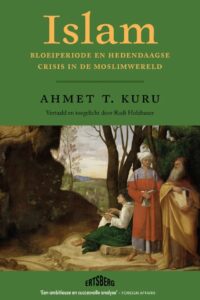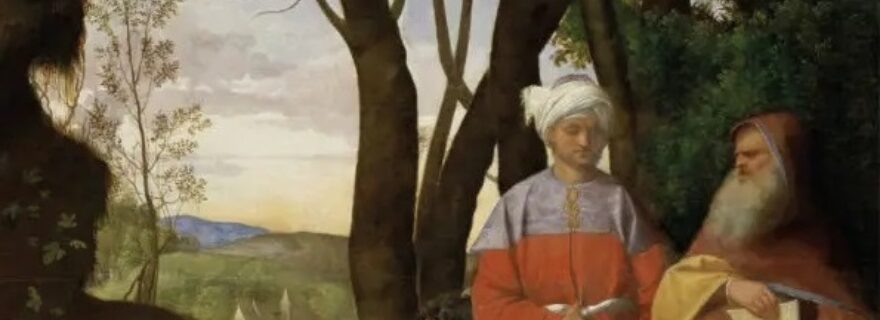The Golden Age and the Contemporary Crisis in the Muslim World
The main cause of the current crisis in many Muslim-majority countries is the ulama–state alliance rather than Islam or Western colonization, argues Ahmet T. Kuru in his recent book. A Dutch translation appeared in May 2023
Islam recently became an important focus of European public debates due to the growth of Muslim populations in Western European societies. Is Islam compatible with Western political and socioeconomic institutions? If yes, what explains the problems of authoritarianism and socioeconomic underdevelopment in many Muslim-majority countries? My recent book, Islam, Authoritarianism, and Underdevelopment: A Global and Historical Comparison, tries to answer these questions with a comparative historical analysis.
In its contemporary analysis, the book compares average scores of democratization and socioeconomic development in fifty Muslim-majority countries with the rest of the world. Through this comparison, it documents the current crisis in many Muslim-majority countries. It explains that the main cause of this crisis is neither Islam nor Western colonialism. Instead, the book develops an argument about the negative impacts of the alliance between Islamic scholars (the ulama) and the state in many countries.
In order to explain why the ulama–state alliance, rather than Islam or colonization, is the cause of the problems, the book conducts a historical comparison between the Muslim world before and after the eleventh century. It explains how independent scholars and merchants led to a “golden age” of science and the economy. Between the eighth and eleventh centuries, the Muslim world had religious diversity, intellectual creativity, and economic dynamism. Muslim polymaths made cutting-edge contributions to diverse fields, such as philosophy, mathematics, optics, medicine, geography, and astronomy. During this period, Muslims taught many things, including how to grow several crops, papermaking, the “Arabic” numerals, and Aristotelian philosophy to Western Europeans.
After the eleventh century, however, the Muslim world experienced the economic transformation from the monetary economy to a semi-feudal land distribution system, the militarization of the state structure, and the rise of religious orthodoxy. The result was the emergence of the ulama–state alliance, which marginalized independent scholars and merchants. Even the foreign invaders, from the medieval Crusaders and Mongols to the modern European colonizers, unintentionally strengthened the popularity of the military authorities and their clerical allies in the Muslim world. That is why Muslim-majority countries experienced a scientific and economic decline. And this is why we chose the title Islam: De bloeiperiode en de hedendaagse crisis in de moslimwereld (“Islam: The Golden Period and the Contemporary Crisis in the Muslim World”) for the Dutch translation of my book, which was published by Ertsberg in May 2023.


The title of the Dutch translation emphasizes the conceptual differences between “Islam” (a religion referring to a set of ideas and ideals) and the “Muslim world” (a human construct referring to a set of practices and actualities). Historically, the book explains how the Muslim world’s golden age was not a simple product of Islam; instead, Muslims absorbed the wisdom of Greek, Sasanian, and other pre-Islamic civilizations and achieved scholarly and economic progress together with Christians, Jews, and others who lived under their rule. Similarly, the current crisis in most Muslim-majority countries cannot be simply explained by blaming Islam. This crisis has been caused by many factors and actors, especially the ulama–state alliance.
My book explains how the eleventh century was a turning point for the history of Western Europe, too. In the early Middle Ages, Western Europe was dominated by the Christian clergy and their royal allies. European societies did not have creative scholarly or economic classes and hence they were much less developed than Muslim societies. After the eleventh century, however, European societies experienced the institutionalization of the church–state separation, the opening of universities, and the rise of a bourgeois class. This became the background of the post-Renaissance transformations in Europe. Hence, my book stresses that the rise of Western Europe cannot simply be explained by its vices, such as colonization, slavery, and wars. Instead, the book examines the roles of printing, navigation, philosophy, science, and political institutions in transforming Western Europe from being a region less developed than the Muslim world and China into the scientific and economic leader of the world.
Normatively, the book challenges the perceived dichotomy between Muslim and Western values. Therefore, it tries to avoid both Islamophobia and anti-Westernism. By documenting Muslims’ medieval contributions to Western Europe, the book shows that Muslim minorities’ integration into contemporary Western societies is likely and natural. By explaining Muslims’ early historical diversity and creativity, it calls for a reform in Muslim-majority countries, in terms of establishing open, meritocratic, and democratic systems.
Dutch intellectuals and bourgeoisie are crucial actors in my book’s analysis of the rise of Western Europe. The Low Countries hosted and produced many pioneering scholars, including Grotius, Descartes, and Spinoza. The Netherlands reached the highest estimated literacy rate in the world between 1600 (45 percent) and 1800 (75 percent). In the first half of the eighteenth century, although its population was only two million, the Netherlands produced about 52 million books. Hence, I am happy to see my book’s translation into Dutch. My book’s Arabic, Bosnian, Indonesian, Malay, and Persian translations have created fruitful public debates. I hope its Dutch translation will also stimulate a productive discussion.
Ahmet T. Kuru is a professor of Political Science and the director of Center for Islamic and Arabic Studies at San Diego State University. Kuru is the author of Secularism and State Policies toward Religion: The United States, France, and Turkey (Cambridge University Press, 2009). His recent book, Islam, Authoritarianism, and Underdevelopment: A Global and Historical Comparison (Cambridge University Press, 2019) won three awards and was included in the Times Literary Supplement’s Books of the Year.



0 Comments